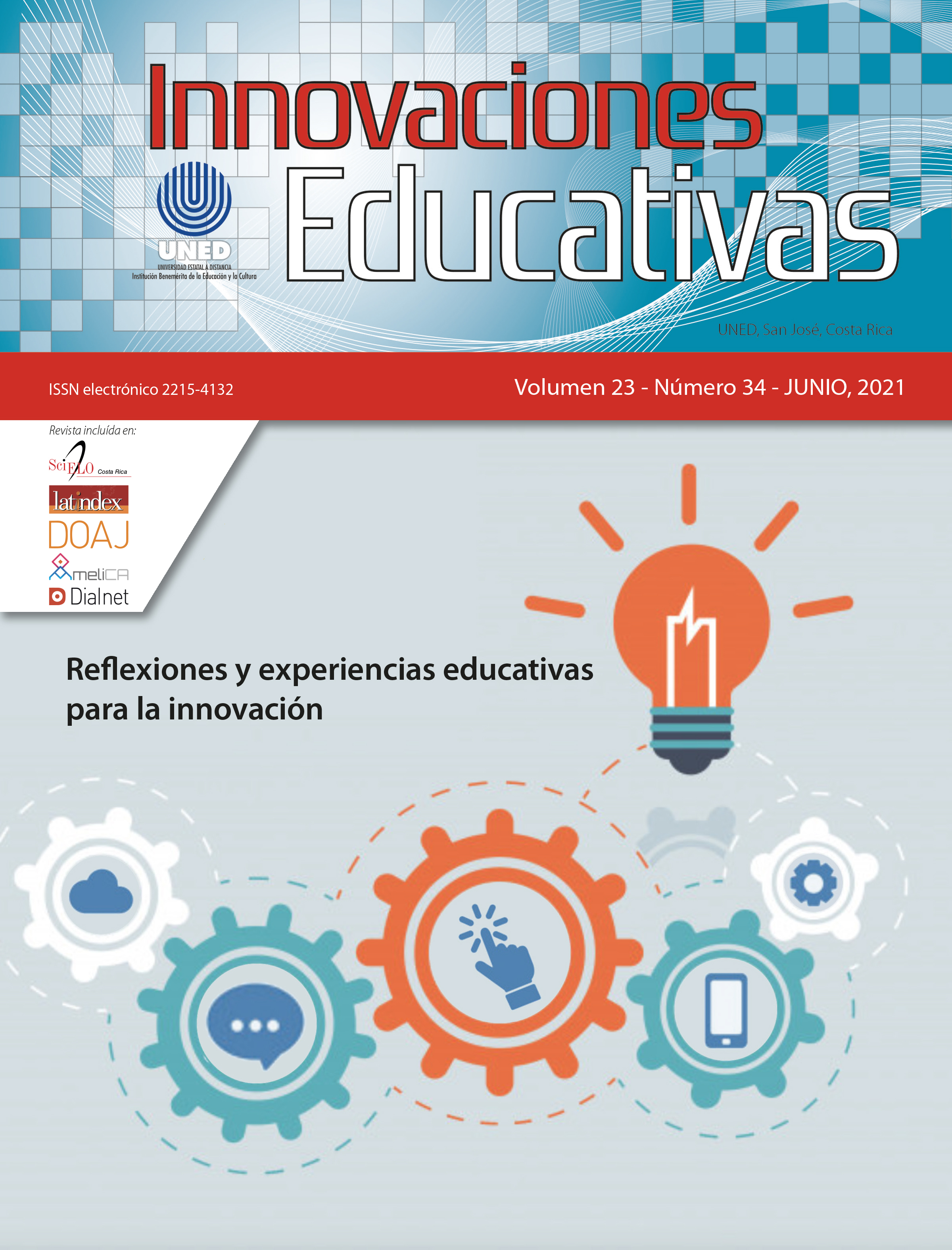Current Challenges in Mathematics Education
DOI:
https://doi.org/10.22458/ie.v23i34.3515Keywords:
Teaching of Mathematics, teacher training, Math talent, educational technology, MathematicsAbstract
Mathematics Education, as a scientific field, analyzes and improves this discipline’s teaching and learning, tackling a variety of issues, problems, and obstacles concerning teaching and learning, teachers and learners, as well as its socio-cultural, political, and economical contexts, among many others. In their quest for solutions and answers, teachers and researchers face different challenges to implement research and innovation actions that will improve Math learning in students. In this article, we briefly reflect on three of the current challenges, related to the use of technology, attention to mathematically gifted students, and teacher training. We discuss some aspects of each challenge, and we also provide references for further reflection on the topic.
References
Bozkurt, G. y Uygan, C. (2020). Lesson hiccups during the development of teaching schemes: a novice technology-using mathematics teacher’s professional instrumental genesis of dynamic geometry. ZDM Mathematics Education. 52(7):1349-1363. https://dx.doi.ord/10.1007/s11858-020-01184-4.
Carrillo, J., Climent, N., Contreras, L. C. y Muñoz-Catalán, M. C. (2013). Determining specialized knowledge for mathematics teaching. En B. Ubuz, C. Haser y M. A. Mariotti (eds.), Proceedings of the 8th Conference of the European Society for Research in Mathematics Education. Ankara, Turquía: ERME.
Diezmann, C. M. y Watters, J. J. (2002). Summing up the education of mathematically gifted students. En B. Barton, K. C. Irwin, M. Pfannkuch y M. O. J. Thomas (eds.), Proceedings of the 25th Annual Conference of the MERGA. Sídney, Australia: MERGA.
Faggiano, E., Montone, A. y Mariotti, M. A. (2018). Synergy between manipulative and digital artefacts: a teaching experiment on axial symmetry at primary school. International Journal of Mathematical Education in Science and Technology, 49 (8):1165-1180. https://dx.doi.org/10.1080/0020739x.2018.1449908.
George Reyes, C. E. y Avello Martínez, R. (2021). Competencias digitales para la práctica docente en pregrado en dos universidades latinoamericanas. Revista de Educación Mediática y TIC (EDMETIC). 10(1):1-19.
Llinares, S. (2013). Professional noticing: a component of the mathematics teacher’s professional practice. Sisyphus. Journal of Education, 1(3):76-93.
NCTM (2021). Illuminations. Página web: https://illuminations.nctm.org/.
Piggott, J. (2011). Rich tasks and contexts. NRICH, Universidad de Cambridge: Cambridge, G.B. Accesible en https://nrich.maths.org/5662.
Resnick, L. B. (1987). Education and learning to think. Washington, DC: National Academy Press.
Ribera, J. M., Rotger, L. (2019). Creando vídeos para la enseñanza y el aprendizaje de las matemáticas. En ICE de la Universitat d’Alacant (ed.), Actas de las XIII Jornades d’Educació Matemàtica de la Comunitat
Valenciana (pp. 63-77). Alicante, España: ICE de la U. d’Alacant. Disponible en https://rua.ua.es/dspace/bitstream/10045/98655/1/LLIBRE_JORNADES_MATEMATIQUES_06.pdf

